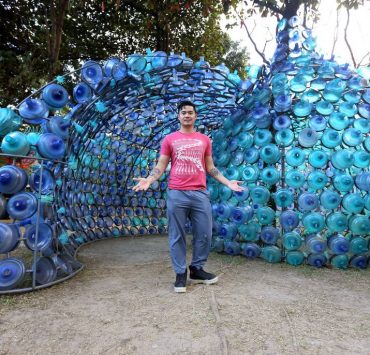Shrine to drug war victims to rise in La Loma cemetery
The La Loma Cemetery in Caloocan City will soon be home to the first shrine to the thousands of victims of extrajudicial killings (EJKs) carried out under former President Rodrigo Duterte’s drug war. Civil society advocates, religious groups and top diplomats were present at the groundbreaking ceremony held on Monday, along with Caloocan Bishop Pablo Virgilio David, Fr. Flavie Villanueva, former Vice President Leni Robredo, former Sen. Leila de Lima, and forensic pathologist Raquel Fortun. All of them had condemned Duterte’s bloody antidrug campaign and even provided assistance to many EJK victims and their kin.
Villanueva said the shrine, which would be called the “Dambana ng Paghilom” (Shrine of Healing), was being built to commemorate those killed in the drug war. The priest founded “Project Paghilom,” a Church-based initiative that offers legal and psychosocial support for victims of the antidrug drive and their dependents. It has been looking after the families of 329 EJK victims—just a fraction of the estimated 7,000 people killed since 2016 when Duterte took power.
Some of the victims’ mothers, widows and daughters were also at the ceremony where they wrote letters to the family members they lost.
“Even now, seven years later, I still long to be with my son,” said Melinda Buenafuente. She and the other relatives of EJK victims wrote down the names of their departed loved ones which they placed along with their letters inside an urn that was buried in the spot where the shrine would be built.
Beyond personal pain
La Loma Cemetery was an appropriate location for the shrine as it was once the resting place for several of the drug war’s most prominent victims, including 17-year-old Kian delos Santos, a student who was shot dead by Caloocan policemen in August 2017. In November 2018, a court found three policemen guilty of his murder—the first conviction of lawmen involved in Duterte’s antidrug campaign.
At the groundbreaking ceremony, Robredo commended the relatives of EJK victims for “choosing to go beyond [your] personal pain to be an active part of this advocacy to protect not only your family but also those who have gone through the same things that you did.”
“I’m sure that your loved ones—even though they’re not with you—are all proud that you have found the strength and courage to support others who are grieving, even while you yourselves continue to grieve,” she said.
“I hope you never run out of hope,” Robredo added. “I know that justice may be slow, but the world is round and someday, we will achieve justice for them.”
Truth commission
De Lima, who had investigated Duterte over the drug war killings after being elected to the Senate in 2016, also spoke at the event. “With this shrine, and with our solidarity and God’s grace, we can start the healing of the families of EJK victims,” said the former senator who was released last month on bail after being detained for seven years over drug-related cases she believed were instigated by the former president.
As they remembered their loved ones, the relatives of the EJK victims reiterated their call for the International Criminal Court’s continued investigation into alleged crimes against humanity committed during Duterte’s antidrug campaign.
Randy delos Santos, the uncle of Kian, also pushed for the formation of a truth commission, similar to the one created in Mexico, to investigate human rights violations during the drug war and to offer reparations to victims.
“As we bury our loved ones here, we hope that we also bury the culture of violence and killing,” he said. “May this shrine serve as a memorial of our eternal calls to stop the killings.” INQ
















